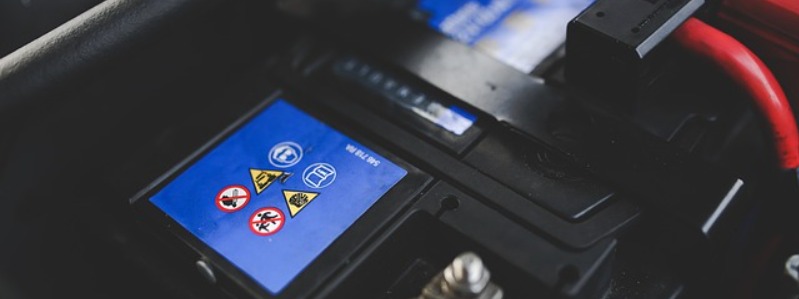Top 5 Reasons for Electrical Problems in Your Car
Contents
When you turn your key in the ignition, do you just hear clicking sounds instead of the engine coming to life? If this is your situation, you may wonder what causes car electrical problems. Electrical problems are less common in today’s cars than in others, but they are also more difficult to diagnose than most. Unlike brakes that squeak or an engine that rattles, electrical problems don’t always announce themselves in a way that is easy to understand.
The complicated nature of electrical issues generally requires specialized diagnostic equipment to identify the root cause of the problem. This equipment accesses the data stored in the vehicle’s computer, indicating how the different components operate. It can then pinpoint the exact problem to make the required repair.
The electrical system comprises several components: battery, battery cables, alternator, starters, and computer system. Problems with any of these components can cause problems with the vehicle’s operation. Here are the most common signs of something wrong with your vehicle’s electrical system.
- Car Won’t Start The most common electrical problem; this indicates there is a good chance there is a problem with the battery, the alternator, or the starters. Get your car into your auto repair shop for diagnosis and repair.
- Visible Damage or Leakage from the Battery Look for corrosion stains or buildup around the battery terminal, signs that the battery is leaking or nearing the end of its life.
- The Lights Work, But Dim While Driving If the dashboard lights or the headlights seem to dim when driving at low speeds or when the car is idling, there may be a problem with the battery, the alternator, or the voltage regulator.
- The car runs fine, but some lights or accessories don’t work. Check the fuses if the light bulbs are good but don’t work or the radio isn’t working. A fuse may simply need to be replaced.
- Burning smell: If you notice a burning smell in your car, it could be due to an electrical problem. This could be caused by a short circuit or overheating.
- Warning lights: If warning lights on your dashboard, such as the check engine light, are illuminated, it could indicate an electrical problem.
Causes of Car Electrical Problems
Electrical issues in a car can be frustrating and can also be dangerous. Car electrical systems power important components such as headlights, brake lights, air conditioning, and the radio. When these systems fail, it can make driving challenging and even dangerous. For example, if your headlights fail while driving at night, you may not be able to see the road, and this could lead to an accident. Electrical problems can also cause issues with starting your car, leaving you stranded.
Dead Battery
Dead batteries are one of the most common causes of car electrical problems. This can happen for various reasons, such as leaving the lights on overnight, a faulty charging system, or simply an old battery that needs to be replaced.

A dead battery can lead to various electrical problems, such as dimming headlights, flickering dashboard lights, and a slow-starting engine. In some cases, a dead battery can also cause the car’s electrical system to shut down completely, leaving the car inoperable.
Keep an eye on your car’s battery health and replace it as needed to prevent dead batteries. Most batteries last 3-5 years, but this can vary based on climate and usage.
Faulty Alternator
The alternator is one of your vehicle’s most vital electrical system components. It’s responsible for charging the battery and powering all of the electrical systems in your car while the engine is running. If your alternator is faulty, it can lead to a host of electrical problems in your vehicle.
A dead battery is one of the most common signs of a faulty alternator. If your battery constantly dies, it could indicate that your alternator is not charging it properly. You may also notice that your headlights are dimmer than usual or your dashboard lights are flickering. This is because the alternator is not providing enough power to these systems.
Another sign of a faulty alternator is a warning light on your dashboard. If your battery warning light is on, it could indicate your alternator is malfunctioning. Other warning lights that may indicate a problem with your alternator include the check engine and the ABS light.
Bad Starter
A bad starter can be a frustrating problem for car owners. When you turn the key, all you hear is a clicking sound or nothing at all. This can be a sign of a bad starter motor or solenoid. These two components work together to initiate the engine’s operation.
The starter motor is responsible for turning the engine over, while the solenoid is responsible for engaging the motor. If either of these components fails, your car won’t start. However, there are some warning signs that your starter is failing. For example, you may notice that your car is slow to start or takes several tries to get the engine going.
Another sign of a bad starter is a grinding noise when you turn the key. This noise results from the starter motor not engaging properly with the flywheel. If you hear this noise, having your car inspected by a mechanic as soon as possible is important.
There are several reasons why starters fail. One of the most common causes is wear and tear. Over time, the starter motor’s brushes and bearings can wear down, causing the motor to fail. In addition, the solenoid can also fail due to wear and tear or damage.
Corroded or Loose Battery Cables
Corroded or loose battery cables can cause a wide range of electrical problems in your car. If your car’s battery cables are corroded, it can cause poor electrical connections between the battery and the rest of the electrical system. This can result in starting problems, stalling, and even battery failure.
Loose battery cables can also create similar problems. When battery cables are loose, the electrical current may not flow properly, causing electrical components to malfunction. This can lead to flickering headlights, dim interior lights, and a poorly functioning stereo system.
To avoid these issues, it’s important to regularly check your car’s battery cables for signs of corrosion or looseness. If you notice any signs of corrosion or looseness, it’s best to have them replaced or tightened by a professional mechanic as soon as possible to prevent further damage to your car’s electrical system.
Faulty Fuses and Relays
Electrical issues in a car can be frustrating and sometimes dangerous. One reason for such issues is faulty fuses and relays. Fuses and relays are small components responsible for controlling the flow of electricity in different parts of the car. Fuses act as a safety mechanism by stopping the flow of electricity when there is a power surge. Relays, on the other hand, act as switches that turn different electrical components on and off.
If a fuse or relay is faulty, it can cause electrical issues in your car, including malfunctioning different electrical components. For instance, if the fuse that controls your car’s headlights is blown, it can lead to your headlights not turning on. Similarly, if the relay that controls the windshield wipers is faulty, you may experience issues with your wipers not working properly.
The good news is that fuses and relays are relatively easy to replace. You can refer to your car’s manual to locate the fuses and relays and determine which needs replacing. You can then purchase a replacement fuse or relay from an auto parts store and replace the faulty one yourself or have it done by a professional.
How to Diagnose Electrical Problems in a Car
You’ve driven your car for hours, and it’s acting weird. You know there’s something wrong with it, but you can’t quite put your finger on it. You’re not the only one.
You can do a few things to diagnose the problem and get your car back on the road. Here are the top 5 reasons your car has an electrical problem.
- Defective wiring.
- Damaged or corroded electrical components.
- Faulty wiring in the engine or transmission.
- Poor installation or maintenance.
- Incorrect use of electrical accessories.
If you suspect one of these problems is causing your car’s electrical problems, take it to a mechanic for a proper diagnosis. You may be able to fix the problem yourself, but it’s always best to have a professional take a look.
We hope you enjoyed discovering the top reasons for electrical problems in your car. These issues can be frustrating and sometimes expensive to fix, so it’s essential to know what to look for to prevent them from happening in the first place. Remember to keep your car’s electrical system well-maintained, and if you do experience any of the issues we discussed, take your car to a trusted mechanic for repairs.

